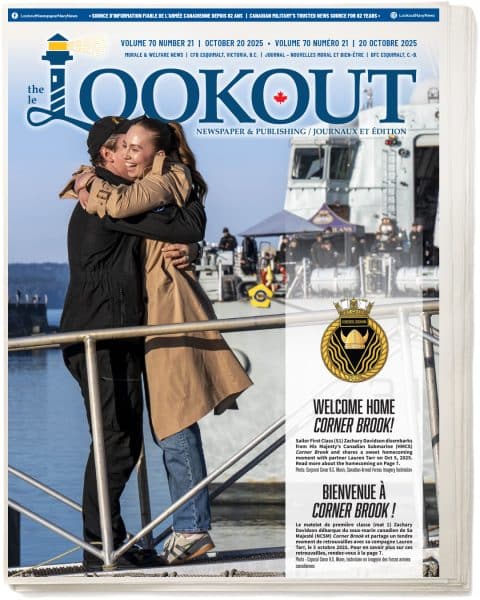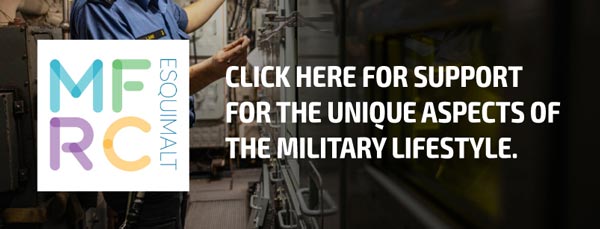DND ~
The Royal Canadian Navy (RCN) and Canadian Forces Health Services Group have finalized the first phase of a health study designed to systematically document and describe the health effects associated with crew members’ exposure to the October 2004 fire on board HMCS Chicoutimi.
The fire happened during the submarine’s transatlantic voyage from Scotland to Canada, and resulted in a number of casualties and the death of Lieutenant (Navy) Chris Saunders.
The health study followed 250 participants, including 56 crewmembers, 42 members of the Care and Custody Team who looked after the submarine following its return to Faslane, Scotland, and 152 randomly selected submariners (acting as a control group).
Stage one of the study analysed the health of participants in the five years preceding the fire and the five years following the fire.
The results of the health study were shared with the former members of HMCS Chicoutimi and the Care and Custody Team at a Town Hall on July 11 at Canadian Forces Base (CFB) Halifax. Following the Town Hall, results of the study were then released to the public. The results presented were not individual medical states (no new personal information was presented to individual sailors), but were instead an overview of the cohort’s general health, which has been compiled to help individual sailors to contextualize their own health, as well as to enable the best possible Canadian Armed Forces (CAF)/Veterans Affairs Canada (VAC) support to those who experienced the fire.
“As the mental and physical well-being of our sailors and the care of our people is our first priority, we appreciate the significance of the study’s findings, and the importance of maintaining a dialogue with and continuing to monitor the health of everyone who was exposed to the fire,” said Vice-Admiral Art McDonald, Commander of the RCN, while leading the Town Hall.
Comprehensive and enhanced medical and mental health care received
Immediately following the fire and over the subsequent months, crewmembers received comprehensive and enhanced medical and mental health care. Despite this care, concerns have lingered with respect to long-term health impacts stemming from exposure to carcinogens or related to respiratory and mental health issues.
Naturally, these issues were among those included in the Town Hall discussion. It was noted by participating VAC staff that applications from former HMCS Chicoutimi crew members for disability claims specific to Post-Traumatic Stress Disorder, depression and asthma – all diagnoses of elevated risk of occurrence for the former boat crew according to the results briefed – have been assessed favourably to date by VAC.
The Canadian Armed Forces and VAC have new resources available for monitoring crewmembers’ health and for providing other forms of support. During the Town Hall event, VAC representatives were on site to provide crewmembers with details of these resources and to answer their questions.
Sharing of results delayed
The RCN apologized at the Town Hall for a delay in sharing the results of the study; the first draft was completed in 2015, but was not finalized until January 2019.
Apologizing, VAdm McDonald said, “For this delay, for which I can offer no explanation that is acceptable to the ex-crew or to me, and for our failure to continue communicating with the ex-crew during the intervening period, I offer my unreserved apology to the ex-crew and their families – appreciating that we owe them better and we are committing to do exactly that!”
According to VAC, delay in providing the health study findings has not adversely affected any claim submissions.
Options for next phase discussed
A key point of discussion at the Town Hall revolved around the way-ahead for continued, long-term monitoring of ex-crew health, as well as accompanying dialogue.
The results of the health study were shared, and options for the next phase of the study were discussed at the Town Hall.
According to VAdm McDonald, the RCN is “committed to improving our communication, and to continuing to monitor the former Chicoutimi crew’s health and well-being in a way that suits the ex-sailors’ needs.”
Following consultation with the former crew, a decision on the way-ahead will be signalled later this summer.
A defining event in Canadian naval history
The events aboard Chicoutimi on Oct. 5, 2004, during which the sub’s crew saved their boat and fought valiantly for each other, have proven themselves to be a defining moment for the Canadian submarine service, and, indeed, the navy as a whole.
“The RCN,” according to VAdm McDonald, “is stronger as a result – both in terms of how we care for and support our people as well as in form of the capability we put to sea.”
As one of Canada’s best employers, as recognized by Forbes in 2019, the RCN now has a fleet of accomplished and capable submariners and submarines. Recent work includes simultaneous international deployments in 2018 that saw Chicoutimi deployed on a record-breaking 197-day Asia-Pacific deployment, totaling 240 days at sea in the calendar year. HMCS Windsor was likewise conducting a Mediterranean and Euro-Atlantic deployment of more than four months. Through these types of contributions, submarines are a vital pillar of the RCN’s Strong, Secure, Engaged employments.










